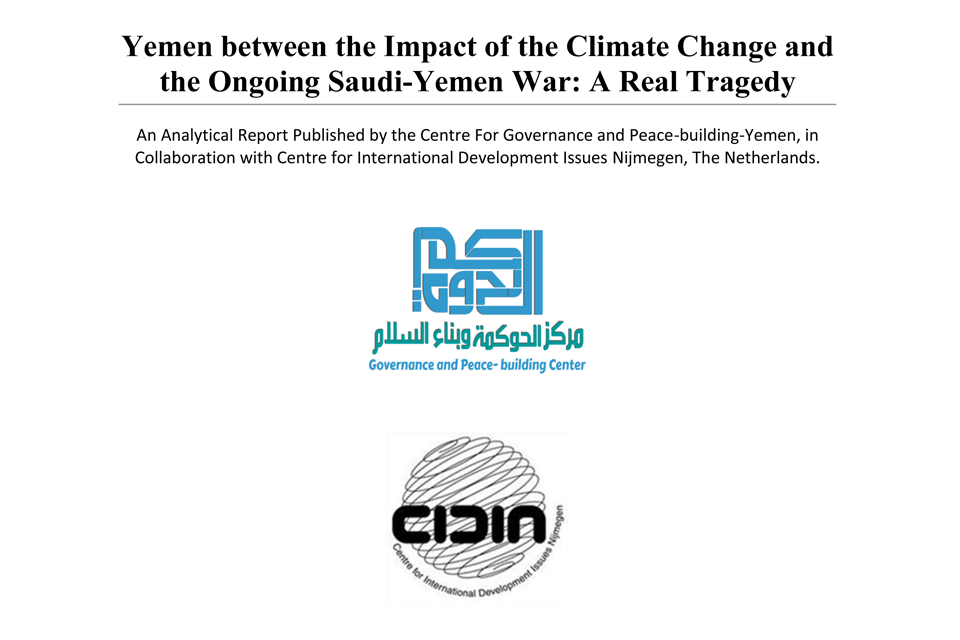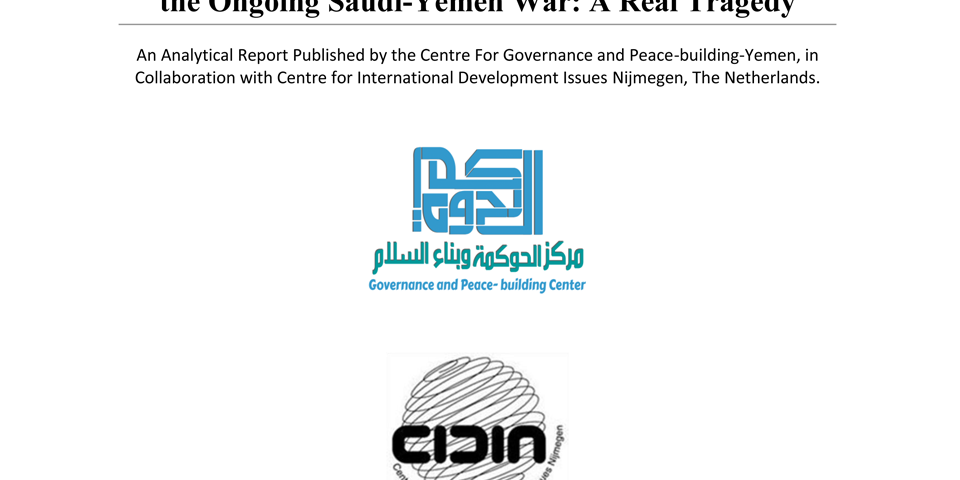Sustainable peace will require changes across a number of sectors in Yemen in order to increase resilience to climatic and environmental risks.

The world’s climate is changing and will continue to change into the coming century at rates projected to be unprecedented in recent human history. Climate change has made weather less predictable and has increased environmental degradation. Environmental degradation has historically influenced political stability. Variables like rapid population change, water and food scarcity, migration, energy and natural resources consumption are already causing problems and will continue to be impacted by climate change. This study focuses on the impact of climate change and ongoing Saudi war on Yemen. Population growth in Yemen is among the highest in the world, with an average annual growth rate of 3% in recent years. Almost one-third of Yemenis or 7.5 million people do not have enough food to satisfy their needs. Results also show that 57.9% of all children strategy is implemented properly, farmers will be more than compensated for the loss of Qat revenues, and Yemen’s food security will improve.





